-
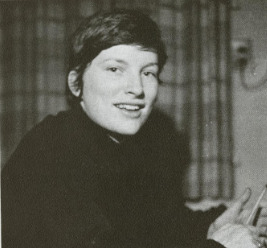
Katy Hogan, Mundelein class of 1972, was interviewed by Chris Mattix. Hogan discusses her childhood in Chicago and her early experiences with activism and awareness of the Civil Rights Movement. As a high school senior preparing to attend Mundelein College, Hogan remembers visiting the college the weekend after Martin Luther King, Jr. was assassinated. Along with her classes at Mundelein College, Hogan describes the formative experience of spending a semester abroad in Cuernavaca, Mexico. She attended Centro Intercultural de Documentacion where she studied Spanish, learned about “deschooling”, and developed a love of travel. With the Vietnam War taking place at the time, student activism was a significant part of Hogan’s college experience. She talks about her role as the student coordinator for the October moratorium in 1969 and student organizing in response to Kent State. She also talks about the support from faculty and administration during these activities. She talks briefly about Mundelein’s gay population and the changes occurring with the women’s liberation movement and gay liberation movement. Hogan also talks about her experiences after college including traveling, co-founding the Heartland Café, and working on political campaigns for David Orr and Harold Washington.
Content Note: These collections may include language or descriptions of events that may be upsetting to some users.
-
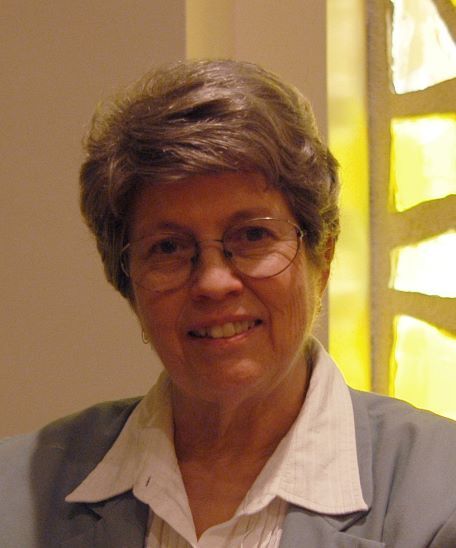
Session 1 of 2
Sister Carol Spiegel, BVM, is interviewed by Nathan Ellstrand. In part 1 of the two-part interview, she discusses her decision to enter religious life and choice to enter the Sisters of Charity of the Blessed Virgin Mary (BVMs) specifically. Her choice of the BVMs was influenced by her aunts that belonged to the order and articles she read in Vista, the BVMs’ publication. She talks about her studies to become a math teacher and her growing interest in theology.
Spiegel also discusses the changes in the time of Vatican II and the social justice movements occurring in the 1960s. She describes the daily routines and recreation of the BVMs studying and living in the Scholasticate.
Session 2 of 2
In part two of the interview of Sister Carol Spiegel, BVM by Nathan Ellstrand, Spiegel talks about how the quality liberal arts education she received at Mundelein College built a foundation for her to teach a variety of subjects during her career. Specifically, she remembers a World Literature course that continues to be relevant in her life and an art class taught by Sister Blanche Marie Gallagher, BVM. She concludes by reflecting on the details that are remembered and those that she’s forgotten.
Content Note: These collections may include language or descriptions of events that may be upsetting to some users.
-
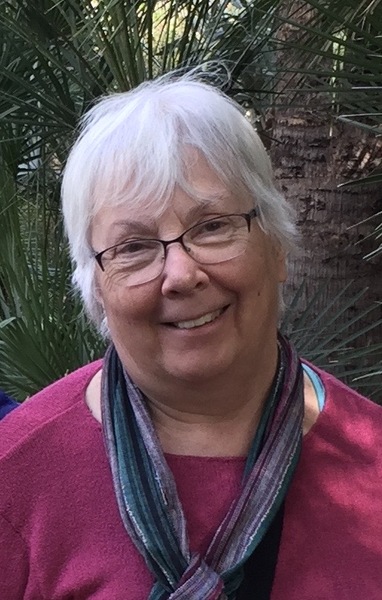
Kathryn “Kathy” Duskey-Gemperle, Mundelein class of 1968, was interviewed by historian Nathan Ellstrand. Gemperle discusses how she enrolled at Mundelein College with the help of Mary Griffin (Mary Ignatia Griffin, BVM) who was a friend of her mother’s. She talks about her time living in Coffey Hall with a small group of people who stayed on campus 7 days a week instead of going home on the weekends. She talks about her decision to join the Sisters of Charity of the Blessed Virgin Mary (BVMs) after three years and her time as a novice in Dubuque, Iowa. At Mundelein, Gemperle was active in the glee club, but devoted most of her time to working in the art studio and completing class assignments such as visiting local galleries. She discusses her time living in the Scholasticate (Wright Hall) when she returned to Mundelein to complete her degree as a BVM and remembers her time as a student teacher. Gemperle talks about how these experiences at Mundelein College influenced her long career as a teacher and her passion for providing good educational opportunities for all students.
Content Note: These collections may include language or descriptions of events that may be upsetting to some users.
-
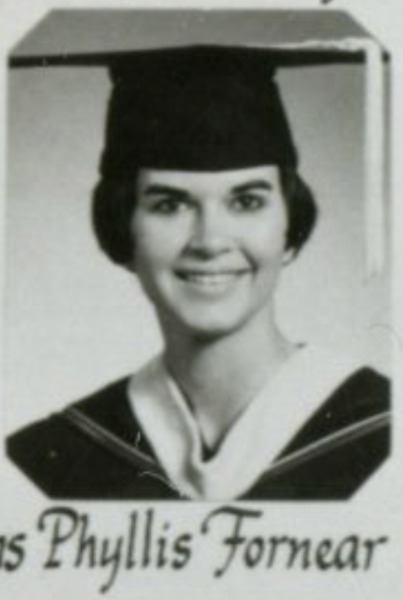
Dr. Phyllis Fornear Fredericksen was a History and English major and graduated from Mundelein in 1968. She talks about living in Northland Hall as a five-day resident her freshmen, junior, and senior year with Sister Thomas Joseph as the head resident. She has fond memories of Sister Joan Frances Crowley, who was in charge of Coffey Hall, as well as Sister Ann Ida, who always knew everyone’s name. Phyllis recalls the dress code and freshmen beanies and how that changed by her senior year. Phyllis also recalls participating in both of Mundelein’s candlelighting traditions: one at Christmastime and the other in the dorms for engaged women. She talks about how her perspective of the world and international events such as the Vietnam war and the assassination of Martin Luther King, Jr. was shaped by these experiences. Overall, Phyllis values the lasting relationships she made at Mundelein and the progressive education the nuns gave her.
Content Note: These collections may include language or descriptions of events that may be upsetting to some users.
-
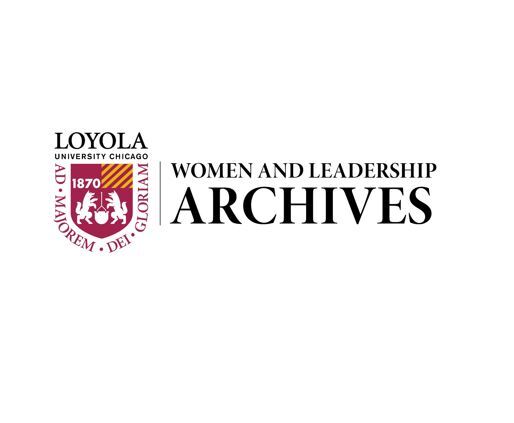
Marilyn Craig was a Business major and graduated from Mundelein in 1984. She was part of the Weekend College, so she describes her experience of being on campus Friday through Sunday. On her weekends at Mundelein, she slept with ten other women in the Northland apartments. It took her 13 years and 8 schools to earn her Bachelor’s degree, so Marilyn is very proud to have been part of Mundelein’s Weekend College, which earned her several promotions at her full-time job. Marilyn characterizes herself at this time in her life as setting herself apart from everyone else—at work and at school—she always had her nose in a book. She regrets not being able to fully participate in all that Mundelein had to offer and not getting to know her fellow Weekend Collegers as well, but she did what she had to do to succeed.
Content Note: These collections may include language or descriptions of events that may be upsetting to some users.
-
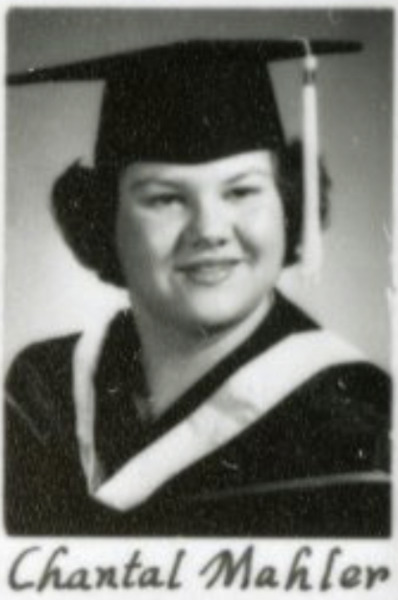
Chantal Mahler was a Spanish and Communications major with a concentration in Journalism and graduated from Mundelein in 1989. She talks about commuting down Sheridan road to Mundelein and her fond memories of working with her classmates on the Mundelein Scholar, the student newspaper, first as sports editor, then editor-in-chief for her junior and senior year. Chantal praises the professors in her major, Sister Mary Pat Haley, Sister Mary Alma Sullivan, and Betty Prevender and talks about how their lessons have stayed with her throughout her career. Sister Jean was also a bright presence throughout her time at Mundelein and after. Overall, Chantal reiterates how wonderful the people at Mundelein were and how she became a strong, capable woman from their guidance and support.
Content Note: These collections may include language or descriptions of events that may be upsetting to some users.
-
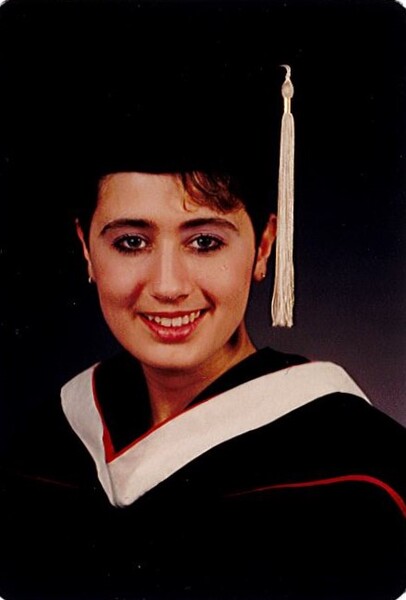
Michelle Arseneau Gilhooly was a business and marketing major and a communications and public relations minor. She graduated from Mundelein in 1991, lived in Coffey Hall for her freshmen and sophomore years and then in Northland Hall for her junior and senior years. She discusses the various activities she was involved in such as working in the Admissions office as part of her work study financial aid, being a member of Tau Beta Sigma Sorority , being a Mundelein Ambassador, a McBuddy, a tour guide for prospective students, and a cover girl on the last marketing brochures for Mundelein College in 1989 and 1990.
Content Note: These collections may include language or descriptions of events that may be upsetting to some users.
-
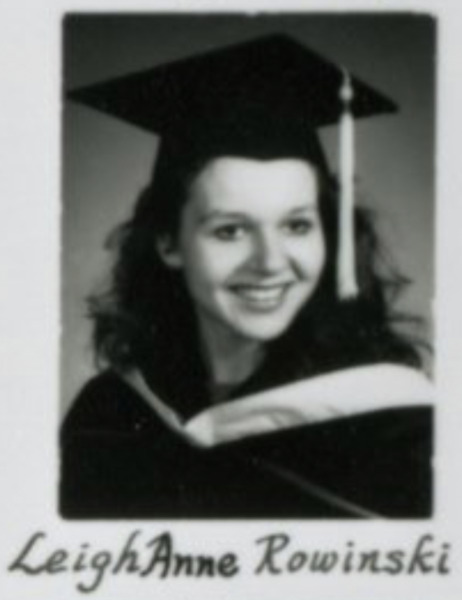
Leigh Anne Rowinski was a Fashion Merchandising and Business Management major and graduated from Mundelein in 1989. She talks about the long-lasting friendships she made with classmates and teachers alike and how she is still in touch with Sister Jean Dolores Schmidt. Sister Joan Frances Crowley, Avis Moeller, Kathy Fell, Sister Judith Dewell and Sister Eliza Kenny were also influential Mundelein professors for Leigh Anne. Leigh Anne also discusses the activities she participated in such as the Mundelein College Singers, the Annual Fashion Show, and the Annual Graduation Committee. She talks about the differences of having lived in both Northland Hall and Coffey Hall. In the second interview, she discusses the annual Cabaret that was completely student-led, directed, and performed.
Content Note: These collections may include language or descriptions of events that may be upsetting to some users.
-
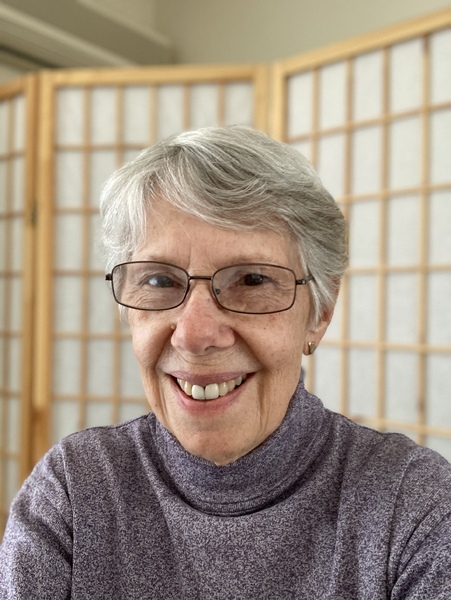
Kathy attended Mundelein in the 1960s, a contentious time in America, and as a result learned a lot about herself and her ideals regarding religion, feminism, and social justice. She talks about riding down to Alabama during her freshmen year to participate in the civil rights march that Dr. Martin Luther King, Jr. led from Selma to Montgomery in March of 1965. Her experiences from that led her to become an Upward Bound counselor when the program started up the following summer. She also remembers the Speakeasies Mundelein held where people from all walks of life would come and speak to students about their lives and experiences. Influential professors for Kathy include Sister Sharon Rose, Ann Matasar, Russel Barta, and Al Miller.
Content Note: These collections may include language or descriptions of events that may be upsetting to some users.
-
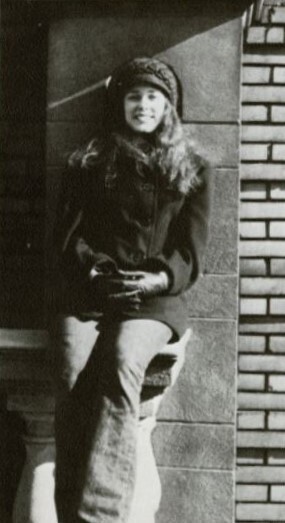
Linda Jack was a Theater major and graduated from Mundelein in 1972. She lived in Coffey Hall for her freshman and sophomore year, then lived in apartments with friends for her junior and senior year. As a theater major, she was very involved in the theater department. She talks about working as a Student Aide for the Theatre Department and a Stage Manager for the Theater and Auditorium. Linda also shares her memories of being in Chorus, Chorale Singers, USO Troupe and being a Student Academic Advisor to underclassmen for the Theater Department. Linda also fondly remembers Sister Jeanelle Bergen, head of the theater department, as well as Janet Binna, Barbara VanCleve, David Orr, and George Petterson, the theater technical teacher. She learned a lot from all of them and appreciated the knowledge they had to share. She was very aware of the political and social upheaval around the country while she was at Mundelein, as evidenced in her participation in Megan Terry’s rock musical, “Viet Rock.” All of this sparked an interest in politics that has stayed with her ever since. Her older sister, Eileen Drake (nee Jack), also attended Mundelein and graduated in 1970.
Content Note: These collections may include language or descriptions of events that may be upsetting to some users.
-
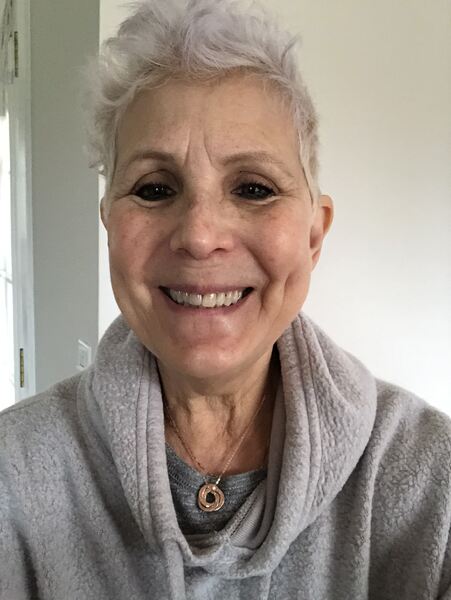
Elizabeth Vitell shares her unique background of growing up in Ithaca, New York then moving to Chile with her parents as a teenager and marrying someone her mom set her up with. She recounts all the moving she and her husband, Carlos, did before settling in Hoffman Estates, Illinois. From there, she made it to Mundelein after starting off at Harper Community College. After having lived in Chile for years, Liz wanted to formalize her Spanish knowledge by majoring in Spanish. She remembers taking classes with Denis Heyck and Sister Kateri O’Shea, who were wonderful and supportive. A particularly memorable class was Sister Kateri’s seminar on Don Quixote, which they read in the original old Spanish. In this class, Liz developed a bond with Sister Kateri and they used their class time to talk about more than just Don Quixote. Liz explains how important this support was to her when Carlos was diagnosed with and died of Leukemia. She remembers everyone at Mundelein being incredibly supportive during this difficult time. Liz also talks about her memories of her graduation ceremony in 1985.
Content Note: These collections may include language or descriptions of events that may be upsetting to some users.
-
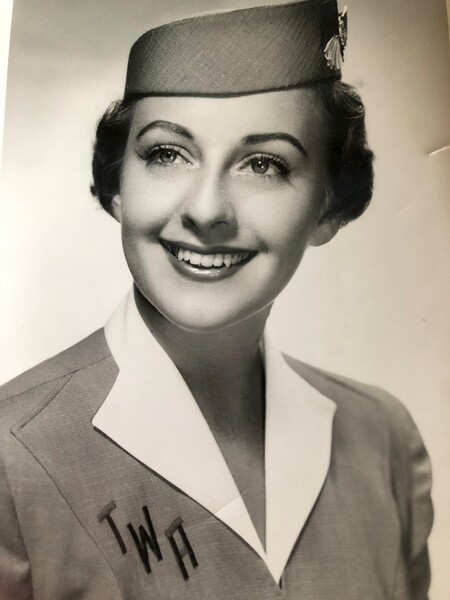
Anne (nee Vondrachek) Hartnett-Beasley attended Mundelein from the winter of 1961 to the fall of 1962. She discusses how she came to Mundelein through a chance meeting with Sister Katherine Forsyth, BVM. She was 23 years old when she enrolled at Mundelein College, and Sister Katherine found her a place to live in the Northland Hotel (before it became a Mundelein residence) with two Loyola graduate students. Anne remembers working at Patricia Vance Modeling School eight hours every Saturday and continuing to work for Trans World Airlines over Christmas vacation and in the summer to pay for Mundelein. She was married on Thanksgiving (November 28) in 1963 and due to finances and moving to Elmhurst with her husband, she did not continue her studies at Mundelein. She tells wonderfully meaningful stories of her relationship with her first husband, whom she met while at Mundelein College, and their connection to Padre Pio and San Giovanni Rotondo in Italy.
Content Note: These collections may include language or descriptions of events that may be upsetting to some users.
-
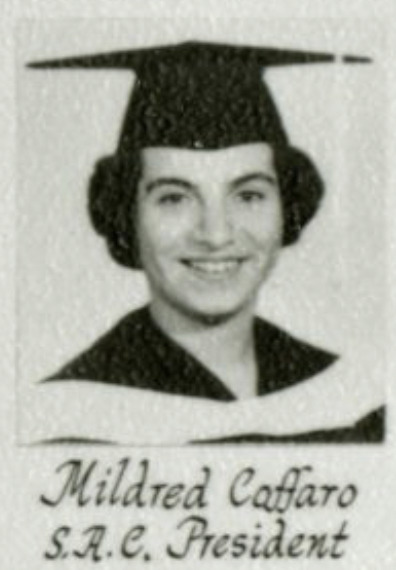
Michela Coffaro, known as Mildred during her time at Mundelein, graduated in 1963 with a degree in sociology. Influenced by her Catholic upbringing and education, Michela talks of her brief stint joining the Sisters of Charity of the Blessed Virgin Mary (BVM). Though that path did not last, Michela continued to have a high regard for Mundelein and the BVMs that taught there. She talks of how the BVMs made opportunities available to the students and saw the value of everyone as an individual. They were genuine women who lived by the values that they taught to their students, and to this day Michela sees the difference one person can make through words and actions. With these ideals in mind, Michela ran for and was elected as Student Body President while at Mundelein because she wanted to make a difference for the women on campus. She values the events she helped organize and participated in because it brought people together and gave everyone purpose and connection. Michela also remembers that professors had politicians come in to speak to classes, which was significant given the contentious climate of the Vietnam War that was going on.
Content Note: These collections may include language or descriptions of events that may be upsetting to some users.
-
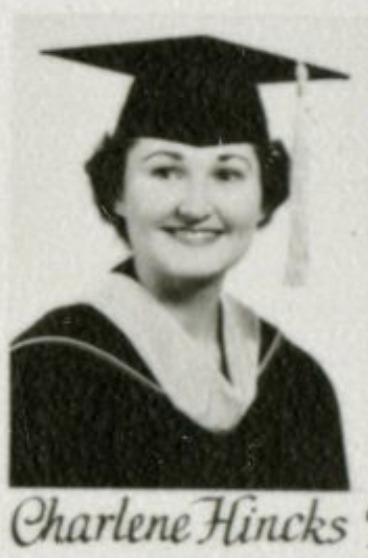
Charlene Hincks McLaughlin was a Music Education major and graduated from Mundelein in 1960. She grew up on the south side of Chicago and had always loved music. She lived on the top floor of the Skyscraper building during her freshman year but commuted the other three years. It was during her commute up to campus that she got her class readings done and was able to manage her time more effectively. The class Charlene remembers most from Mundelein is her music theory class. Charlene played the piano and organ at Mundelein and recalls spending a lot of her free time practicing. Charlene remembers the mandatory meetings for students in Hackman Hall (the Skyscraper auditorium) and how the music students would have to play the pieces they had been working on for class at these meetings. Charlene reflects on her time as a teacher after Mundelein and how important music is to children. She believes in incorporating poetry, dancing, history, social studies, discipline, and math into music. After taking a break from teaching to have her four sons, Charlene went back to work as a music teacher for kindergarten to junior high-aged students.
Content Note: These collections may include language or descriptions of events that may be upsetting to some users.
-
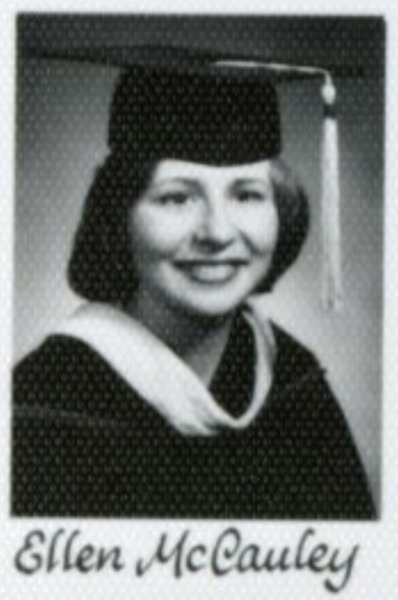
Ellen McCauley Zerega was born and raised on the westside of Chicago, Il, she is the fourth of six children. She attended school at Our Lady Help of Christians, a BVM institution. After high school, Ellen the University of Illinois Chicago (then known as Circle), where her brother also attended, from 1975-1977 where she was the secretary of the history student association. In this position, she helped to bring President Jimmy Carter and Rev. Jesse Jackson to campus.
In the fall of 1977, she transferred to Mundelein College as a commuter student continuing her history education with a hope of teaching. At Mundelein, she served as the president of the history student association and was inducted into the history honor society Phi Alpha Theta. Ellen fondly remembers her time at Mundelein, particularly her student teaching experience and her interaction with faculty. Ellen also held a part-time position at Saks 5th Avenue.
Shortly after graduation, Ellen married her husband Joe Zerega in 1979. Joe and Ellen welcomed their eldest daughter in 1984, her son in 1985, her second daughter in 1988, and her youngest in 1991. After the birth of her son Ellen chose to become a stay-at-home mother to care for her children before going into business with her husband Joe, starting Preferred Network Access, a healthcare cost containment company in 1995 which is still in operation.
Content Note: These collections may include language or descriptions of events that may be upsetting to some users.
-
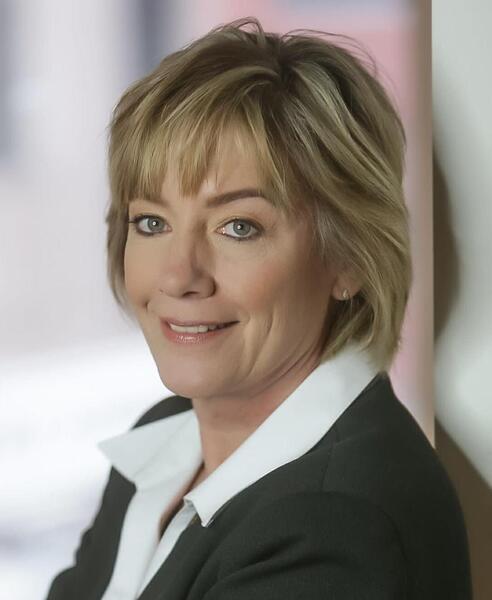
Andrea Raila was a Social Economics major and graduated from Mundelein in 1983. Andrea remembers starting out as a Fine Arts major for her first three years with a minor in English, but after taking micro- and macroeconomics with Sister Mary Paul Frances Bailey, BVM, Andrea knew that was what she needed to be studying. Andrea was greatly influenced by the impassioned stances she saw her professors advocating for. She talks about memorable moments with Sister Irene Meyers, Bill Hill, Dan Vaillancourt, and Sister Ann Harrington. Andrea talks about getting into cartooning and becoming an anonymous cartoonist for an elected official for 25 years. This official went on to become Governor of Illinois. She had remarkable experiences through the influential speakers that the faculty brought to give lectures at Mundelein, including Mother Theresa and Cesar Chavez. Andrea talks about how Mundelein has shaped the person and businesswoman she is today.
Content Note: These collections may include language or descriptions of events that may be upsetting to some users.
-
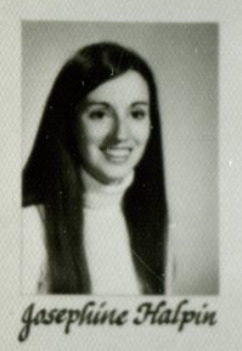
JoBeth Halpin was a Psychology and Education major and graduated from Mundelein in 1972. She lived in Coffey Hall all four years and was a Resident Advisor her senior year. She talks about the shift in culture from her first semester to her second, which spoke to the larger systemic changes she would see throughout her time at Mundelein. JoBeth was also an elevator operator and planned parties and mixers as the Social Chairman for the Student Government. She marks this as a time of real change in the country as well as in herself; JoBeth was active in the anti-war protest marches and learned a lot about herself and the person she wanted to be. She fondly remembers her music appreciation class with Sister Judith and her interactions with Sister Jean Dolores. Above all else, Mundelein shaped who JoBeth is as a person and values the long-lasting connections she still has from her time there.
-
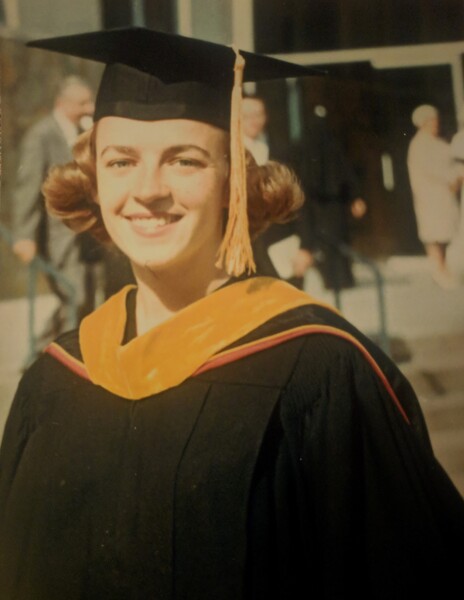
Kathy Halloran Liska (née Halloran) is the middle child of six children (three girls and three boys) that were born and raised two miles from Mundelein College in Chicago. She was a Biology major and graduated from Mundelein in 1964. Being so close to school, Kathy talks about commuting with her friend [Herta Kaiser]. At one point Kathy contemplated becoming a nun, but upon realizing she wanted to have kids, she discarded the idea. She fondly remembers Sister Cecilia, the biology department chairmen, and working with her as a lab teaching assistant. Kathy also held jobs as a switchboard and elevator operator during her time at Mundelein. Since her family did not have a car in the city, Kathy remembers Mundelein giving her the first opportunities to get out of Chicago with trips and socials to other colleges, skiing with the outing club, and a trip to the Indiana Dunes with the biology department’s sorority, Beta Beta Beta (Tri Beta). Kathy talks briefly about the national unrest during her time at Mundelein in the 1960s, but focuses on her studies, jobs, and friends on campus.
Content Note: These collections may include language or descriptions of events that may be upsetting to some users.
-
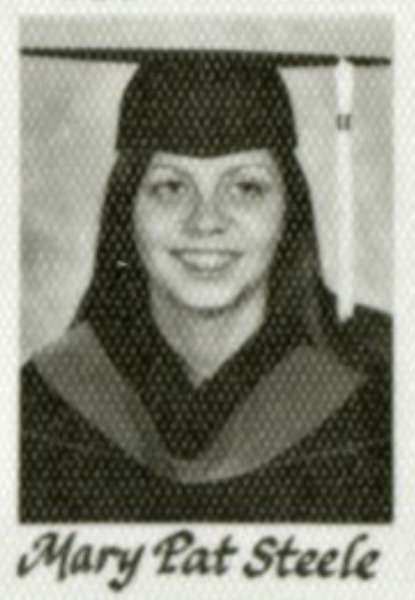
A commuter student graduating in 1974, Mary Pat Bertacchi reminisces how she enjoyed the commute up Lake Shore Drive along the lakefront and never having trouble making friends with commuters and non-commuters alike at Mundelein. Mary Pat discusses the memorable classes that she took and how her professors would always do their utmost to help her succeed. Out of all of them, Mary Abbott Hess, the nutrition professor, was a positive influence on Mary Pat. She taught Mary Pat critical thinking skills and helped her gain the confidence she did not know she had. Hess was also well-regarded in her field and Mary Pat appreciated how she used that to her students’ advantage by bringing experts already in the nutrition profession to speak to classes and ground their studies in the real world. Mary Pat also fondly remembers Sister Jean Dolores Schmidt who, upon finding out Mary Pat could not afford spring tuition, made sure scholarship funds were available to allow Mary Pat to complete her schooling.
Content Note: These collections may include language or descriptions of events that may be upsetting to some users.
-
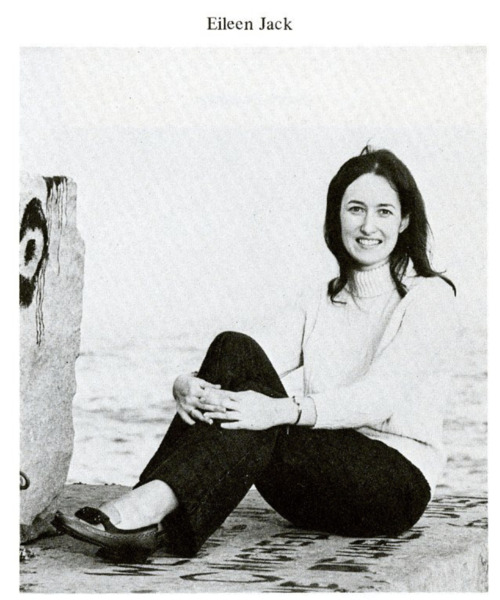
Eileen Drake was a Social Science major and a Political Science minor, interested in journalism; she graduated from Mundelein in 1970. She talks of her time as a writer, editor, and occasional photographer for Mundelein’s student-produced newspaper, The Skyscraper, as well as the underground insert called Hades. Eileen discusses her decision to join the Sisters of Charity of the Blessed Virgin Mary (BVM) after her freshmen year at Mundelein in 1965. She returned to Mundelein in 1967-1968 as a BVM Novice, living at the Scholasticate. She talks of her decision to leave the BVM order in July 1968, yet continuing her studies at Mundelein until graduating in June 1970.
Content Note: These collections may include language or descriptions of events that may be upsetting to some users.
-
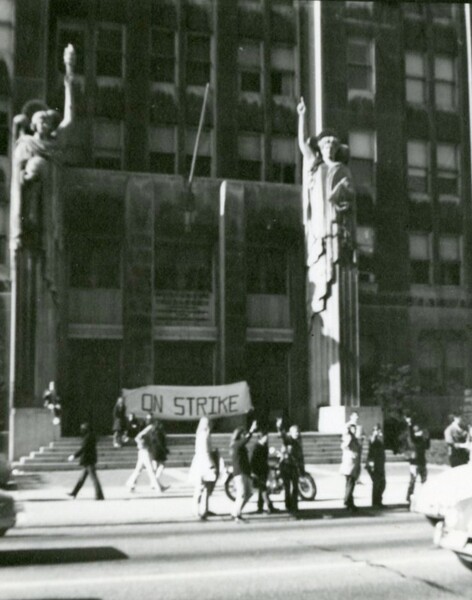
Susan Carlson was a history major and graduated from Mundelein in 1971. She participated in Mandala, the experimental college, during its first year of operation, 1970-71. She lived in Coffey Hall during her freshman year, 1967-68, and during the first two terms of her sophomore year, 1968-March 1969. During her junior year, Susan lived in the Northland. She worked on campus 10 hours a week as a student aide in the Academic Dean's office. Initially, she worked for Susan TePas and Sister Jean Dolores Schmidt (lucky her!). Later, she worked for Sister Frances O'Shea, BVM as well as for Sister Jean Dolores. During the summer of 1970, she worked full-time in the Registrar's Office. During her senior year, Susan also worked on Saturdays at the Chicago Historical Society (now known as the Chicago History Museum).
Content Note: These collections may include language or descriptions of events that may be upsetting to some users.
-
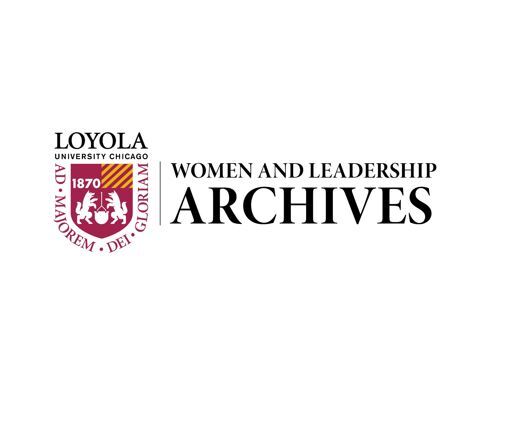
Kelly Buckhalter (née Craig), Mundelein Class of 1992, was interviewed by Chris Mattix, a Loyola Public History graduate student and graduate assistant at the Women and Leadership Archives. Kelly recalls her time at Mundelein as an interior architecture major, including living in Coffey Hall and working at the Skyscraper switchboard. Buckhalter also recounts interactions with faculty members including Sister Jean Dolores Schmidt, Sister Catherine Forsythe, and Sister Newhart. In addition to living and working on campus, Kelly was a member of one of the last graduating classes before the Loyola-Mundelein affiliation and recalls her experience of this as a student. Kelly also reflects on changing technology on campus in the 1980s and 1990s.
Content Note: These collections may include language or descriptions of events that may be upsetting to some users.
-
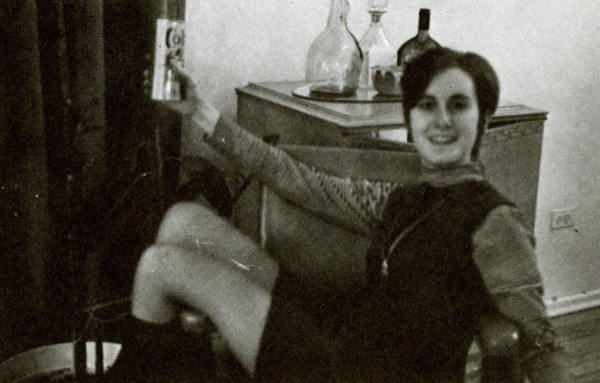
Kathleen Cummins Devereaux was an English and French double major and Journalism minor who lived in Coffey Hall. She graduated from Mundelein in 1970. She recalls her participation in the student newspaper, The Skyscraper, where she wrote the “Skyscrapings” column under the pseudonym “Tully.” Kathleen was also discusses her political activities while at Mundelein, including helping campaign for Eugene McCarthy’s presidential nomination for the Democratic party. Memorable professors that Kathleen discusses include Dr. Barta from the sociology department, Sister Ann Leone and Dr. Michael Fortune from the English department, and Professor William (Bill) Hill from the theology department. Kathleen also talks about studying abroad in Switzerland during her senior year and, as a result, missing Mundelein’s graduation ceremony.
Content Note: These collections may include language or descriptions of events that may be upsetting to some users.
-
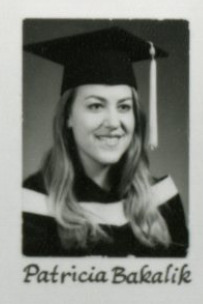
Transferring from Moraine Valley College in 1986, Patricia Bakalik was recruited to play volleyball at Mundelein College until she graduated in 1990. She discusses her volleyball career and the significant role coach Brenda Weare played for her. Patty felt very spoiled living on campus, first at Coffey Hall and then at Northland Hall because she would fall asleep to the sound of the waves from Lake Michigan every night. Patty describes all of the activities she was involved in and how little sleep she got because of it. She played volleyball and softball, worked at the front desk in Coffey and then Northland Halls, was an elevator operator, the President of the Women's Athletic Association, co-chair on the Commencement Committee, and sports editor for The Scholar student newspaper. Influential Mundelein staff members include journalism professor, Betty Prevender, President Mary Breslin, and school counsellor, Cam Helkowski. Throughout Patty’s interview, she talks about how thankful she was to be surrounded by constant support, inspiration, and kindness from the women working and studying there. A Mundelein quote that has stayed with her is, “What Mundelein has given me, I will forever cherish. What I can give to others, I will gladly share.”
Content Note: These collections may include language or descriptions of events that may be upsetting to some users.
-
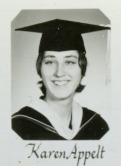
Karen A. Szymanski was an English major and graduated in just three years from Mundelein in 1971; she says her “peeps” graduated in 1972. She talks about living in Northland Hall for a year, then moving into an apartment with some friends. Karen cannot say enough good things about the English department at Mundelein. The lessons she took from classes with Mary Griffin, Mike Fortune, and Yohma Gray have stayed with her throughout her life and professional career. She recounts that it was from Mundelein professors that Karen began to develop her critical thinking skills and was encouraged to take a stand on issues with a clear voice. Karen remembers social life at Mundelein including casual hang outs with friends in Northland Hall, going to Hamilton’s for a burger and coke, and having parties down by the beach. Overall, Karen felt Mundelein had a lasting impact on her as a person in how she carries herself and her ability to effectively and persuasively communicate with others.
Content Note: These collections may include language or descriptions of events that may be upsetting to some users.

























